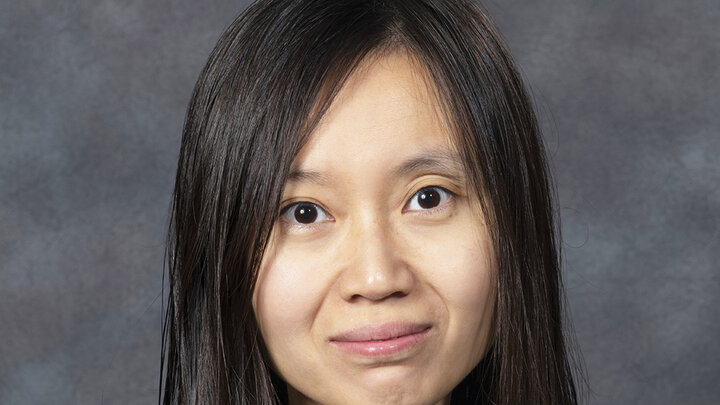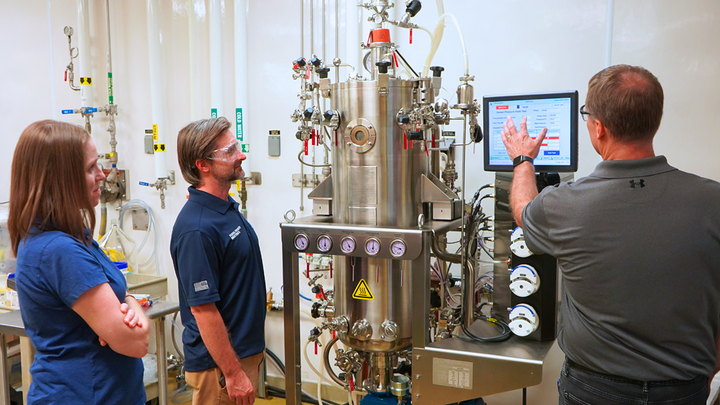Inspired by the ability of the human body to heal itself from cuts, bruises and broken bones, Congrui "Grace" Jin, assistant professor of civil and environmental engineering, is using microorganisms to develop a concrete that can heal its own cracks.
Jin has been awarded a Defense Advanced Research Projects Agency (DARPA) Young Faculty Award – which will provide $250,000 in the first year and could be extended to up to three years and $1 million. This award will support Jin's work to develop a biological repair technique, which she said is a "very-young-but-promising technology" that could have far-reaching applications in building and bridge construction, and especially in the design of storage facilities for spent nuclear fuel.
Cracking in concrete is very common owing to the effect of various chemical and physical phenomena – such as drying shrinkage, alkali-silica reaction, freeze-thaw cycles, reinforcement corrosion, and fatigue. Without proper treatment, cracks tend to progress further, impair the durability of the concrete, and eventually require costly repair. These cracks also provide easy paths for liquids and gases to travel through the concrete.
Use of microorganisms will promote calcium mineral precipitation to heal cracks in concrete infrastructure and will hopefully lead to more cost-effective ways of producing self-healing concrete.
"Buildings in areas such as Nebraska are experiencing an increased number of freeze-thaw events and warmer winter temperatures due to climate change. This technology will make our buildings stronger," Jin said.
Awarded annually to approximately 20 early career scientists who are within the first 10 years of their independent careers, the Young Faculty Award (YFA) supports rising stars in junior faculty positions across all disciplines of science, engineering, mathematics and the social sciences. The YFA program emphasizes those without prior DARPA funding and gives them exposure to Department of Defense needs and DARPA's program development process.
"It's one of the most exciting opportunities of my career," Jin said of the DARPA Young Faculty Award, which will also help support graduate students in her lab.




